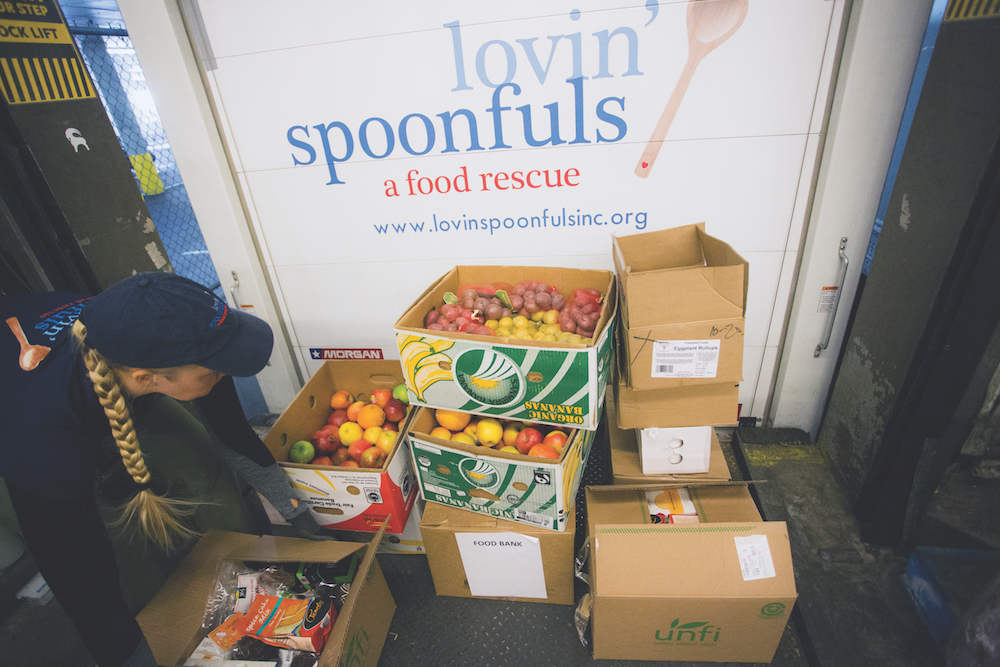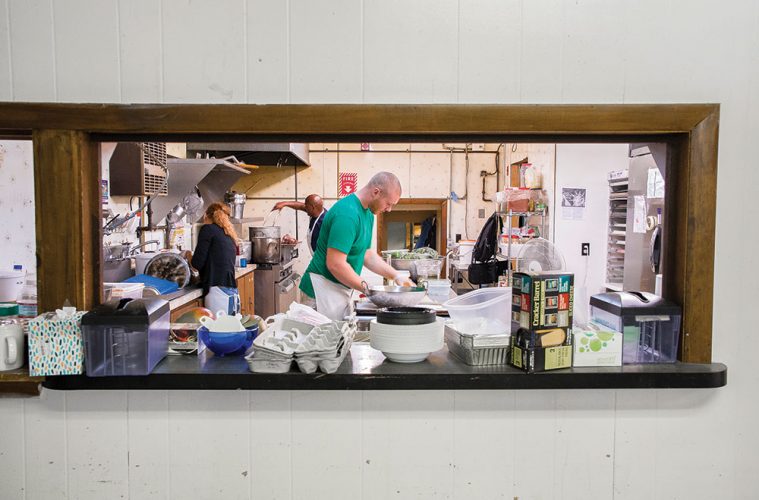Essex County is home to 776,000 residents. The food insecurity rate was last registered at 9 percent. That means 69,840 of our neighbors—children among them—spend their days and nights hungry. But thanks to the many agencies taking a more comprehensive, forward-thinking approach to poverty, many people are moving beyond hunger toward employment, enrichment, and fruitful lives.
Citizens Inn Haven from Hunger is one such agency. Serving residents of Peabody, Salem, and Lynnfield, its mission is to break down the patterns of instability in people’s lives. Their target population falls into the extremely-low-income bracket—defined as below 30 percent of the region’s median income. Many are single mothers with infants; a large percentage are senior citizens in need of a meals program.
The recent merger of Citizens Inn with Haven from Hunger was made, in part, to expand programming to include a culinary arts training program. “Our mission isn’t about housing or feeding somebody forever. It’s about trying to break down whatever it is that is in the way of [people] providing those things for themselves,” says executive director Corey Jackson. “If we can provide programs that can increase incomes and assets, as well as education, then we are doing something that is changing [an individual’s or] a family’s trajectory, and hopefully the next generation’s path, as well.”
The two agencies have been operating jointly since August, allowing Citizens Inn to utilize Haven from Hunger’s facilities to deliver services that include the food pantry and an evening dining program, and to expand their offerings to include workforce training. The goal is to help people currently experiencing homelessness get meaningful jobs in the culinary arts and/or start businesses or develop social enterprise ideas.
The first of the combined agency’s efforts is to renovate the ground floor of the Haven from Hunger facility to include a new kitchen for the training programs. People who currently access the two agencies’ housing programs will be able to enroll in these workforce development programs. (The nonprofit is talking to several area restaurants about potential partnerships.)
Jackson notes that the last 10-plus years have seen a shift toward innovative solutions to the problems associated with poverty and homelessness. “It’s very expensive to build additional housing, so there have to be other ways that we can put families on a path toward success. You’re seeing a lot of programs develop workplace trainings and the social enterprise concept of using the facilities for new business ideas.” The latter brings residents together to build a catering or baking venture—an approach that Jackson sees as a game changer.
The new culinary training program targets youth, young mothers, and young adults. “A lot of effort is being focused on the 18- to 24-year-old demographic that has aged out of foster care and has nowhere to go,” notes Jackson. “I see a lot of great models—The Open Door and Root, for example. There is more than enough need to go around, so I say, the more the merrier when it comes to these programs.”

Lovin’ Spoonfuls, a Boston-based nonprofit, takes a refrigerated truck throughout eastern Massachusetts collecting food and delivering it to roughly 150 different agencies for distribution. Working with partners in Burlington, Danvers, Gloucester, and Peabody, they rescue food that would otherwise go to waste.
Lauren Palumbo, chief operating officer, agrees that the approach to food relief has changed over the last decade. The connection between hunger and health issues has been a driver of that shift. High rates of obesity, diabetes, and high blood pressure are linked to highly processed foods, which traditionally have been used as the main source of sustenance to feed the hungry. “We are waking up to the issues at hand, and we understand that we need to provide healthier options to all. Everyone should have access to healthy foods,” says Palumbo. “And we are here to meet that need.”
Many hunger relief agencies are trying to move away from the concentration on canned food, bread, and pastry donations of the past. “We work with businesses that have a diversity of products including produce, dairy, and protein, and prepared foods,” she explains. “There needs to be infrastructure for utilizing healthy food that was going to waste. We are now making those connections—moving it from the point at which it was going to waste to where it can be used.”
“We are also riding a wave of education right now,” adds Lovin’ Spoonful’s founder Ashely Stanley. “There’s so much emphasis on and discussion around food production. People want to know where their food is coming from.”
Despite the ever-broadening ways of thinking about these issues, some things remain the same. Foremost among them is the power of individuals to make a difference. For every dollar donated to Lovin’ Spoonfuls, for instance, 3 pounds of food is rescued—enough to feed one person for a full day.
However, it remains true that diversity is key to effective problem-solving. And the number of people going hungry in Essex County is a problem to be solved. The growing emphasis on innovative solutions to hunger relief is promising. “There are so many different ways to look at food and hunger and all of the things that surround this issue—it’s an incredibly multitentacled issue,” notes Palumbo. “And we [need to] provide a solution that is equally multifaceted.”
Citizens Inn Haven from Hunger
Lovin’ Spoonfuls

